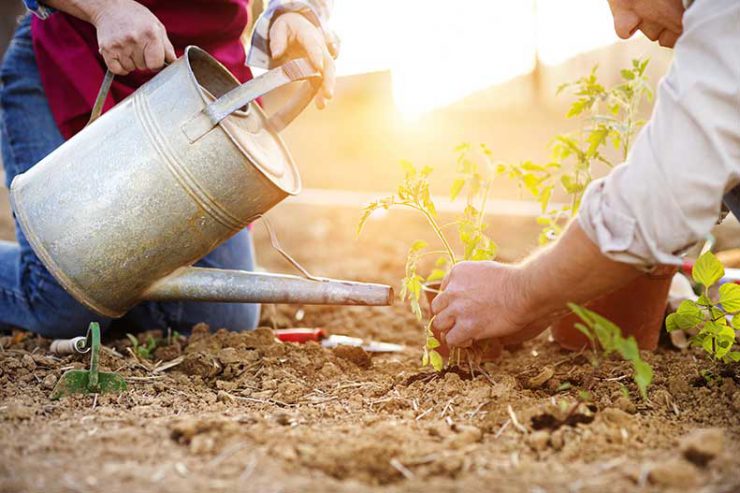Gardening may seem like a safe hobby, and for the most part, it is. But it can lead to injury if you aren’t careful. So, before you rush outside to tend your garden, be sure to consider ways to decrease aches, pains, and strains while participating in this popular leisure activity.
Michael Balandiat, OTR/L, CHT, an occupational therapist for UPMC Rehabilitation Institute, offers the following helpful tips to make gardening easier and more comfortable, even if you have physical limitations.
1. Protect Your Joints
Choose tools with padded handles to protect the joints in your hands and fingers from excess pressure. Tools like shears or clippers with spring-action, self-opening features are helpful if you have a weak grasp. Padded work gloves are also a good option.
Never Miss a Beat!
Subscribe to Our HealthBeat Newsletter!
Thank you for subscribing!
You can now select the specific newsletters you'd like to receive.
You are already subscribed.
Subscribe to more newsletters in our email preference center.
Sorry, an error occurred. Please try again later.
Get Healthy Tips Sent to Your Phone!
2. Conserve Energy
Sit while you’re working to conserve energy and decrease stress on your back, knees, and hips. Consider using a kneeler seat. This is a combination kneeling platform and seat that helps you rise from a kneeling or seated position. Take breaks and stop work before you become overly tired.
3. Limit Lifting
Be wary of those heavy bags of soil, mulch, or fertilizer. Instead of moving the whole bag, divide it into smaller, more manageable loads. Use a cart or wagon to move materials.
When lifting, always use the muscles in your legs and core – not your back. For heavier tasks, ask for help or hire someone to help you.
4. Think Small
Start with a small garden area that you can manage without excess exertion. Locate it close to your house and a water supply to reduce hauling long lengths of garden hose.
Consider switching to a lightweight garden hose or a coiled hose. This will reduce the stress and wear on your body.
5. Mix It Up
Vary your tasks to avoid overstressing any one part of your body.
Tightly gripping or pinching a tool for extended periods can cause swelling in the hands and arms. Hunching over or kneeling for prolonged periods can cause back strain and knee pain. Change your position frequently to keep from becoming stiff.
Learn more about occupational therapy and hand therapy programs at UPMC Rehabilitation Institute. We can help you safely engage in physical activities like gardening.
Editor's Note: This article was originally published on , and was last reviewed on .
About UPMC Rehabilitation Institute
The UPMC Rehabilitation Institute offers inpatient, outpatient, and transitional rehabilitation, as well as outpatient physician services so that care is available to meet the needs of our patients at each phase of the recovery process. Renowned physiatrists from the University of Pittsburgh Department of Physical Medicine and Rehabilitation, as well as highly trained physical, occupational, and speech therapists, provide individualized care in 12 inpatient units within acute care hospitals and over 80 outpatient locations close to home and work.
